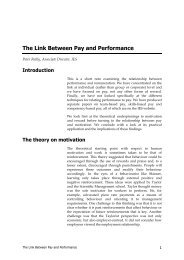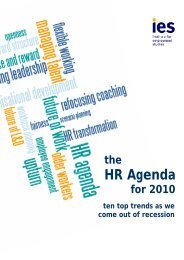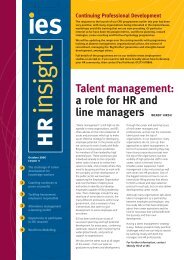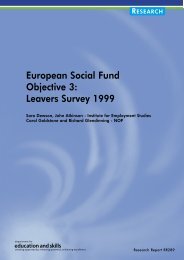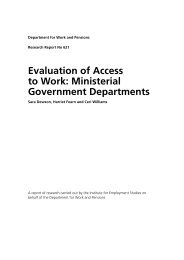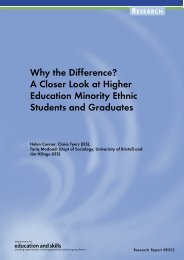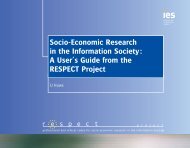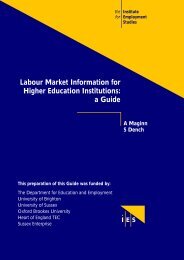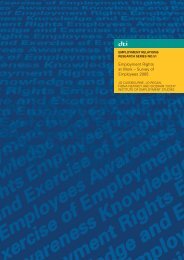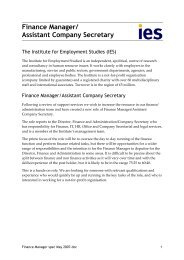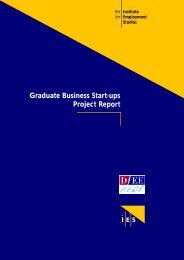Post-16 Transitions: a Longitudinal Study of Young People with ...
Post-16 Transitions: a Longitudinal Study of Young People with ...
Post-16 Transitions: a Longitudinal Study of Young People with ...
You also want an ePaper? Increase the reach of your titles
YUMPU automatically turns print PDFs into web optimized ePapers that Google loves.
Figure 9:2: Parental views on young person’s future<br />
Since Year 11 whatever the<br />
young person has done<br />
worked out well<br />
I am positive about the young<br />
person's future<br />
The young person gets enough<br />
support in planning for their<br />
future<br />
0% 20% 40% 60% 80% 100%<br />
Source: IES/MORI 2003<br />
Agree Neither agree nor disagree Disagree Don't know<br />
at these figures though, it appears that parents and carers are<br />
less likely to agree <strong>with</strong> this statement if the young person had<br />
behavioural, emotional or social development needs at school<br />
than if young people had other types <strong>of</strong> SEN.<br />
Sixty-nine per cent <strong>of</strong> parents and carers also reported that<br />
they were positive about the young person’s future. Again,<br />
this figure masks some differences. Parents and carers whose<br />
children had a statement <strong>of</strong> SEN and/or who had attended a<br />
special school were less likely to be positive about the future<br />
than those whose children were not statemented, and/or had<br />
attended a mainstream school. Parents <strong>of</strong> young people <strong>with</strong><br />
behavioural, emotional or social development needs were<br />
once more less likely to agree <strong>with</strong> this statement than parents<br />
<strong>of</strong> young people <strong>with</strong> other SEN difficulties.<br />
When discussing help to plan for the future, again 69 per cent<br />
<strong>of</strong> all parents and carers reported that they thought the young<br />
person received enough support in planning the future.<br />
Parents and carers <strong>of</strong> young people <strong>with</strong> statements <strong>of</strong> SEN,<br />
and/or those who had attended a special school were,<br />
however, less likely to report that this was the case, compared<br />
to those whose children did not have a statement or who had<br />
attended a mainstream school. Parents and carers <strong>of</strong> young<br />
people <strong>with</strong> behavioural, emotional or social development<br />
needs also seem far less likely to think that the young person<br />
had enough support to plan for their future than those <strong>with</strong><br />
any other type <strong>of</strong> SEN.<br />
Although these findings are largely positive, it remains that at<br />
least one in five <strong>of</strong> all parents and carers were not positive<br />
about how things had worked out for the young person so far,<br />
nor were they positive about their future, or the adequacy <strong>of</strong><br />
the support they received to plan for the future.<br />
<strong>Post</strong>-<strong>16</strong> <strong>Transitions</strong> <strong>of</strong> <strong>Young</strong> <strong>People</strong> <strong>with</strong> SEN: Wave 2 127



